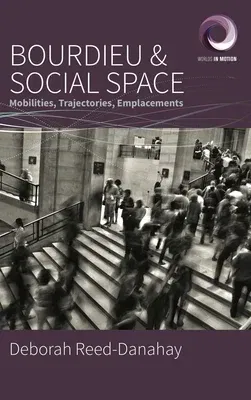Deborah Reed-Danahay
(Author)Bourdieu and Social Space: Mobilities, Trajectories, EmplacementsPaperback, 11 November 2022

Qty
1
Turbo
Ships in 2 - 3 days
In Stock
Free Delivery
Cash on Delivery
15 Days
Free Returns
Secure Checkout

Part of Series
Worlds in Motion
Print Length
170 pages
Language
English
Publisher
Berghahn Books
Date Published
11 Nov 2022
ISBN-10
180073641X
ISBN-13
9781800736412
Description
Product Details
Author:
Book Format:
Paperback
Country of Origin:
US
Date Published:
11 November 2022
Dimensions:
22.61 x
14.99 x
1.27 cm
ISBN-10:
180073641X
ISBN-13:
9781800736412
Language:
English
Location:
New York, NY
Pages:
170
Publisher:
Series:
Weight:
240.4 gm